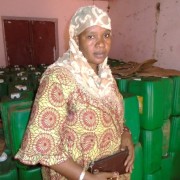Speeches Shim
All basic education activities were terminated following the 2012 coup d’état. Currently, the Education Team manages two awards: (i) Out-of-School Youth, implemented by EDC; and (ii) Back to School, implemented through a grant to UNICEF.
Like much of the Sahel, Mali is subject to frequent droughts and experiences a significant variability in annual rainfall. Climate change is expected to increase local temperatures, the variability of rainfall, and the magnitude of extreme weather events. With more than 80 percent of Mali’s population dependent on agriculture for their livelihood, which is predominantly rainfed, they are extremely vulnerable to the impacts of climate change.
The Accelerated Economic Growth team manages a portfolio of $21 million in FY 2014 funds. This portfolio includes two Presidential Initiatives - Feed the Future and Global Climate Change. The team also serves as the technical resource for Agency priorities including Mobile Money, the Development Credit Authority, and Public Private Partnerships. The team includes the Food for Peace Program, which managed an additional $35 million in humanitarian funds in FY 2014.

Rokia Haidara, an entrepreneur in Mali, knows all too well the challenges that women face in starting and running a business. She founded her own company in the city of Sikasso in 2008, and like other women business owners, realized that accessing credit was difficult. By 2016, Haidara was actively looking for a financial assistance for her company, which specializes in wholesale cereals such as rice, maize and millet, wheat flour and palm oil. Through a good friend, she heard about the Feed the Future Mali Finance for Food Security and Women Entrepreneurs (FFSWE) Program.


Comment
Make a general inquiry or suggest an improvement.